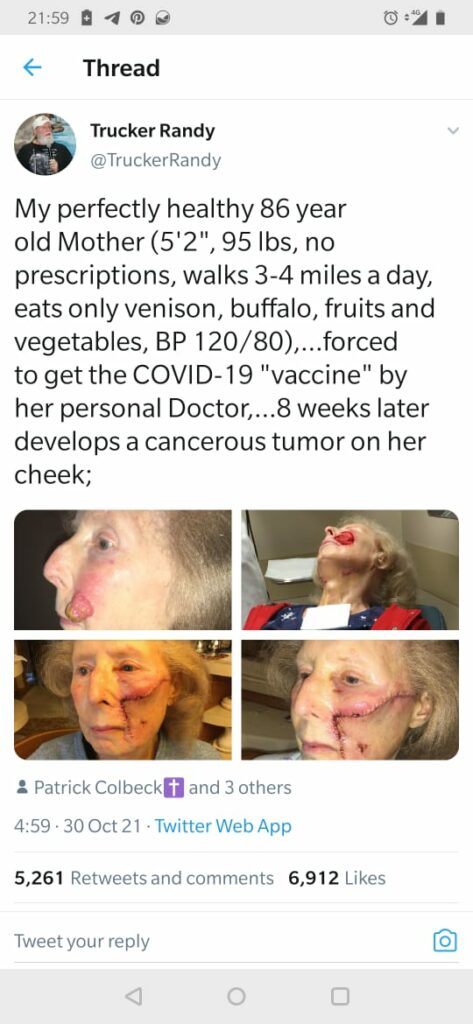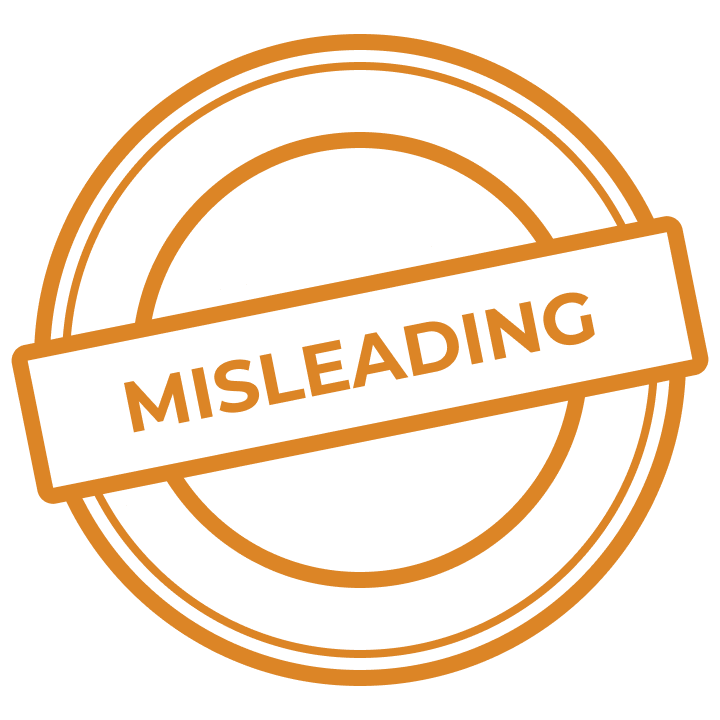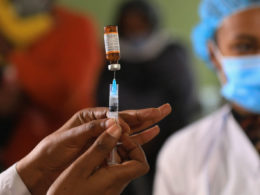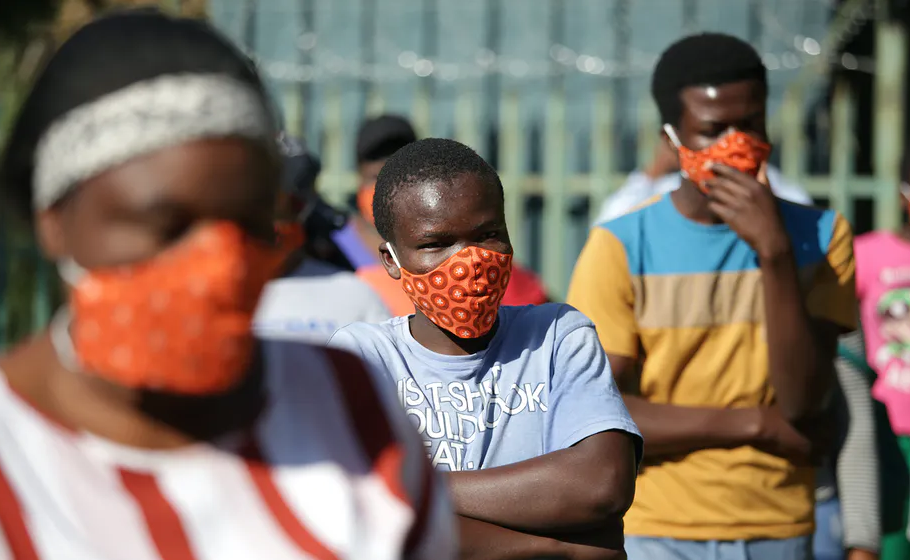Claim: A Twitter user claimed that his mother was forced to get the Covid-19 vaccine by her personal doctor and eight weeks later developed a cancerous tumour on her cheek.

Contacted for a comment, the Health Desk Experts said there is no evidence from Covid-19 vaccine clinical trials or controlled follow-up data that links World Health Organisation (WHO) approved Covid-19 vaccines with increased risks of cancer or HIV/AIDS.
They said most scientists have seen a decrease in cancer incidences.
“Estimates suggest that at least 20 percent of people have had to delay medical care and treatment during the pandemic, including testing for and diagnosis of cancer,” said the Experts.
“Several studies show that Covid-19 vaccines generate key immune-boosting white blood cells, called helper and killer T cells, specific to Covid-19. This helps organizes immune system responses and then kill cells that are infected with the Covid-19 virus. T cells play a large role in defending the body against viruses and bacteria, as well as diseases like cancer,” they said.
The Health desk experts said Covid-19 vaccines have not been shown to suppress T cells and there is no evidence that shows coronavirus vaccines weaken the immune system, or make people more susceptible to cancer or other illnesses like autoimmune diseases.
“There is also no possibility of HIV/AIDS transmission from the Covid-19 needle. A new needle is used every time, and there are no data that show an increase in HIV cases among vaccinated individuals. In addition, among individuals living with HIV, clinical trials of WHO-approved Covid-19 vaccines have not shown any increase in the development of AIDS among individuals with HIV.”
In addition, the Health desk Experts added that the United States Centres for Disease Control and Prevention (CDC) recommend that people who are moderate to severely immunocompromised receive Covid-19 vaccines and, in some people with cancer, a booster shot as well.
‘Many expert medical groups recommend that most people with cancer or a history of cancer get the COVID-19 vaccine once it’s available to them. Cancer patients tend to be more susceptible to severe disease due to the diseases’ impact on the immune system and cancer treatments, in some cases, impacting the ability of the immune system to fight off additional infections,” said the Health desk experts.








